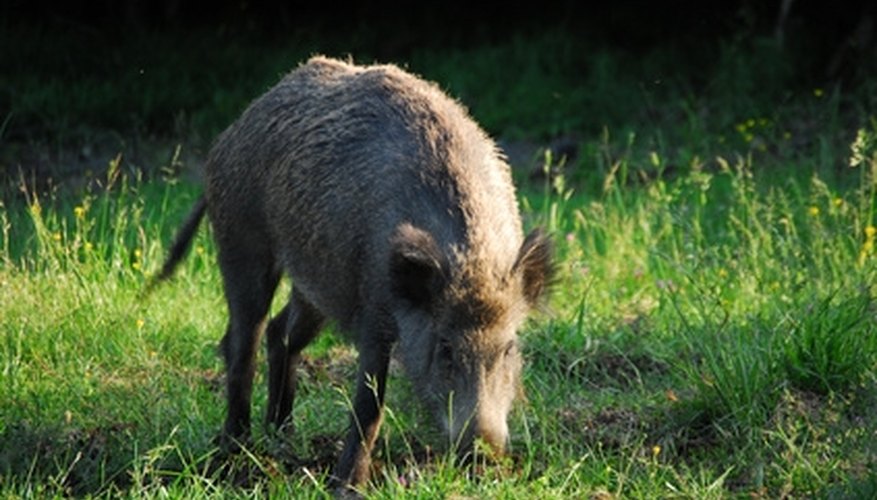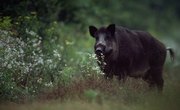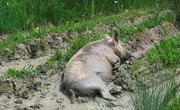
Wild boars are descendants of animals brought to the U.S. by the Spanish in the 1500s. There are some regular hogs also that have escaped and become wild. There are not a lot of wild hogs of either variety in Illinois, but there are some in the southern part of the state in forested areas. Hunts for these animals are not regulated. Some guides are offering hog hunts in the southern areas.
History
There are two types of wild hogs. The Boar was brought to the U.S. by the Spanish in the 1500s for food. They have become established in many states since then. There are also domesticated pigs that have escaped and become wild over the years. The two interbreed, so it is hard to tell the difference at times.
Most of the wild hogs in Illinois are descendants of domesticated pigs. In the early days of settlement, pigs were allowed to run wild and farmers gathered them up when they wanted to fatten one to eat.
Considerations
Most wildlife officials consider wild hogs to be nuisances. They have no natural predators and multiply rapidly. They destroy crops and wildlife habitat with their digging. They carry diseases that affect other animals, and they are aggressive and sometimes kill small animals. They can also be aggressive toward humans when threatened.
Legality
Wild hogs--whether boar or of the feral variety--are not classified as game animals, and not protected by the Department of Natural Resources. No license is required to kill a wild hog in Illinois. You must have permission of the landowner, and be able to tell the difference between domestic animals and wild animals. There is also no season or bag limit.
A basic hunting license is required for killing them on public land.
Range
Hogs tend to stay in wooded areas, and venture out into fields of crops during the summer. So far the hogs are limited to the southern 10 counties of Illinois. They are growing in number, but it is not known how many there are.
Outfitters
Most guides or outfitters offer deer hunting, as deer are the most popular animal to hunt in Illinois. A few in the southern regions of the state offer wild hog hunts. The advantage of a guided hunt is that the guide takes care of all the details and puts you in a position to make a kill. This is especially beneficial if you do not know the area and do not have time to scout for the animal before going hunting.
Writer Bio
James Jordan has been a writer and photographer since 1980. He has worked for newspapers in Arkansas, Tennessee, South Carolina and Kansas, winning state press association awards for writing, photography and page design. In 1995 he received his master's in Christian education and completed two years of Ancient Greek at the graduate level. Jordan holds a Bachelor of Arts in journalism.



